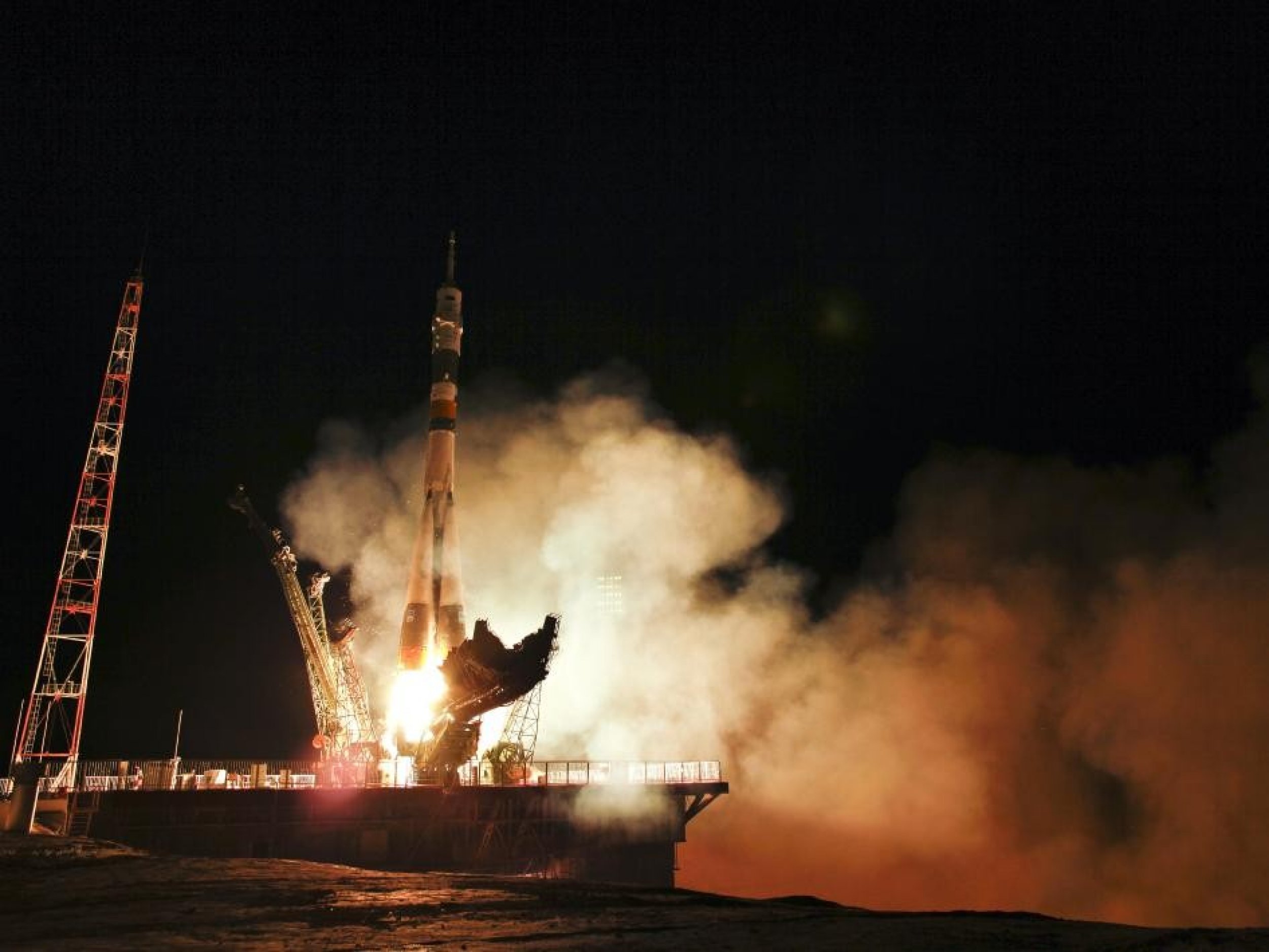Russian Spacecraft Crashes Five Minutes After Launch (Photos)
An unmanned Russian spacecraft carrying three tons of food, fuel and water for the International Space Station crashed about five minutes after it was launched, NASA officials said Wednesday.
The spacecraft was launched at 9 a.m. EDT on Wednesday from the Baikonur Space Center in Kazakhstan.
“The Progress M-12M cargo ship was not placed in the correct orbit by its rocket and fell back to Earth,” the Russian Space Agency said.
Mission Control Moscow reported that communication with the spacecraft was lost five minutes, 50 seconds after its launch.
At 1300 (GMT), we lifted off, following 320 seconds of flight there was a failure in the upper stage of the launch vehicle. We lost communications after a while with the launch vehicle and we did not report stage separation,” said Maxim Matuchen, head of Mission Control.
The agency said the engine failure made it impossible for the spacecraft to achieve the required orbital velocity and it fell to Earth.
Russia might fail to deliver the cargo to its six crew members living at the ISS as planned after the Progress spacecraft failure but it does not pose an immediate problem for its crew as they are stocked with supplies which were taken by NASA’s last shuttle flight Atlantis in July.
The astronauts could stretch current stocks of food, water, and other supplies for a year, and probably longer, with a reduced crew of three, said NASA spokesperson Kelly Humphries.
Though there is no supply problem but a new crew who was supposed to replace the current ISS crew will not be able to replace it on time and they will have to stay at the station longer than planned.
We will bring them home when it's right to do so, ISS program manager Michael Suffredini of NASA said during a press conference.
Scheduled launches of Soyuz rockets are likely to be suspended until the reasons of the accident are found out, a source in Russia's space industry told RIA Novosti.
Since the U.S. shuttle program retired last month, Russian Soyuz crafts has become the only way for transporting supplies to space for American astronauts.
NASA is paying the Russian space agency, Roscosmos, around $1 billion to fly Americans on these rockets for the next four years.
Six crew members -- Russians Andrei Borisenko, Alexander Samokutyayev and Sergei Volkov, Americans Ronald Garan and Michael Fossum and the Japanese Satoshi Furukawa -- are currently working in the ISS.
The next Progress cargo ship will fly to the ISS after late September or early October, said Gennady Raikunov, head of Russia's Central Scientific Research Institute of Machine Manufacturing.
After the last month’s final shuttle mission this was the first launch to the station. The last mission delivered more than 9,000 pounds of food and equipment to the ISS.
The loss is the first loss of a Progress in the history of Russia's space industry.
The spacecraft crashed in the Siberian forest.
“Spacecraft debris landed in three separate areas of the Altai region in southern Siberia, which borders Mongolia,” the Russian Ministry of Emergency Situations said.






© Copyright IBTimes 2025. All rights reserved.





















